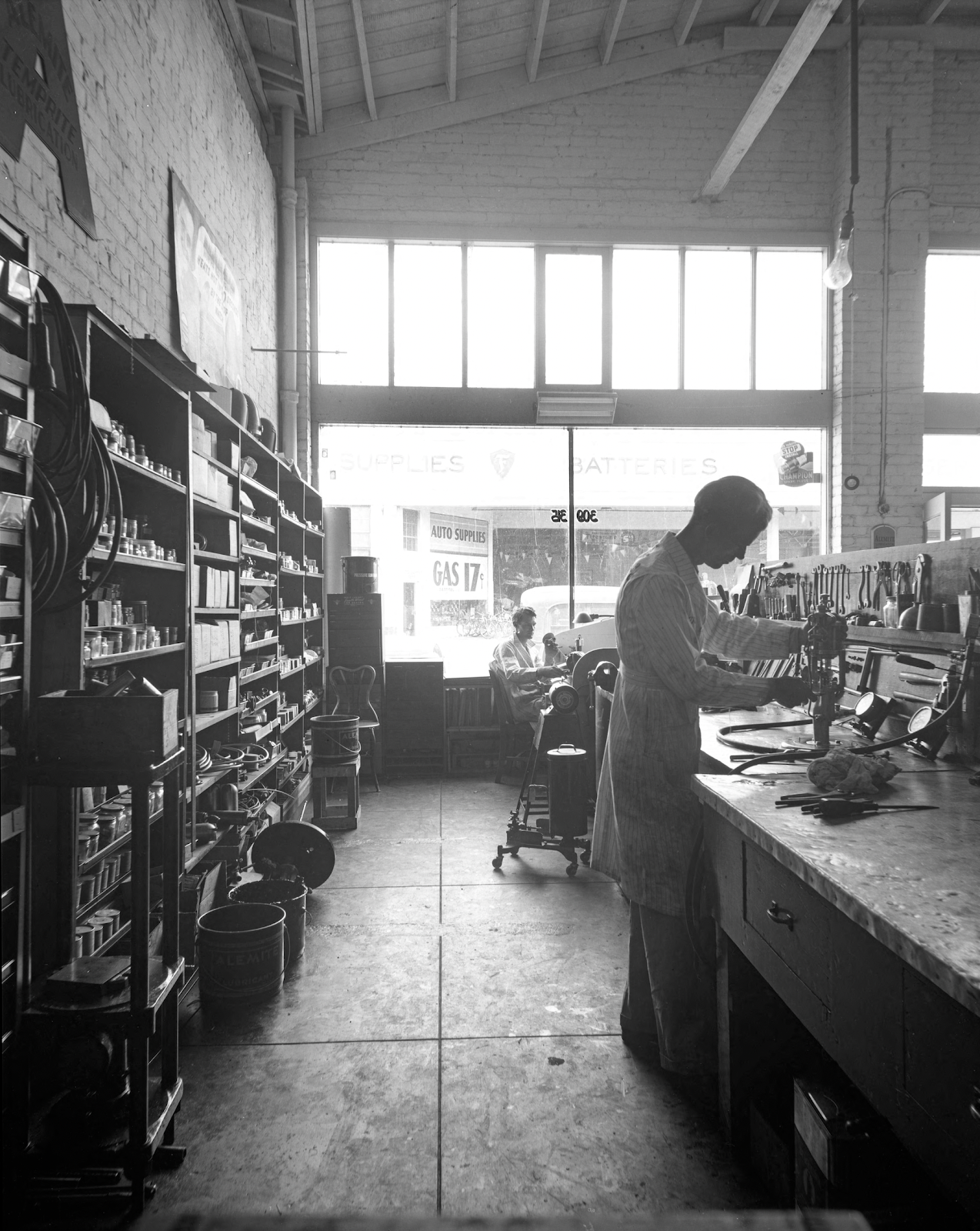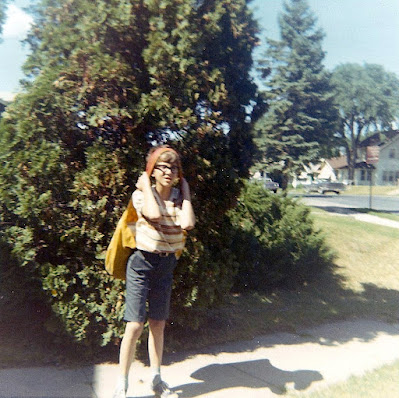Buying a radio in Phoenix, Arizona in 1949

This imaginary journey is inspired by a photo that my top history adventurer shared with me recently. At first glance it didn't look like much, but the more I learned about it the more fascinated I became with the idea of stepping into it. Let's go to Phoenix in 1949, and buy a radio. This is Washington at 7th Avenue, and we're looking northeast. The building right there behind the bus is the old Consolidated Motors, and where the sign says "Motorola" is Consolidated Radio Sales. We can stop at the Safeway later on. Since it's 1949, the street cars are gone, as you can tell because the wires are gone, but the tracks are still there, waiting to be paved over. The buses have taken the job over, and they're much newer, more comfortable, and most people prefer them. In the future, street cars will gain popularity as nostalgia, but in 1949 the bus feels real good, soft cushioned seats, rubber tires, and at some point air conditioning! But let's get back to ...
















